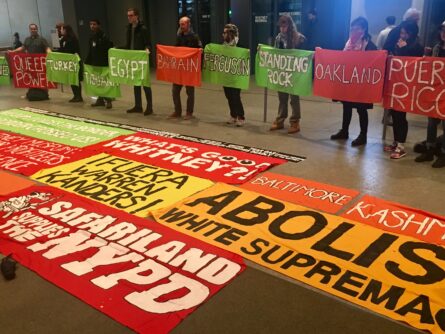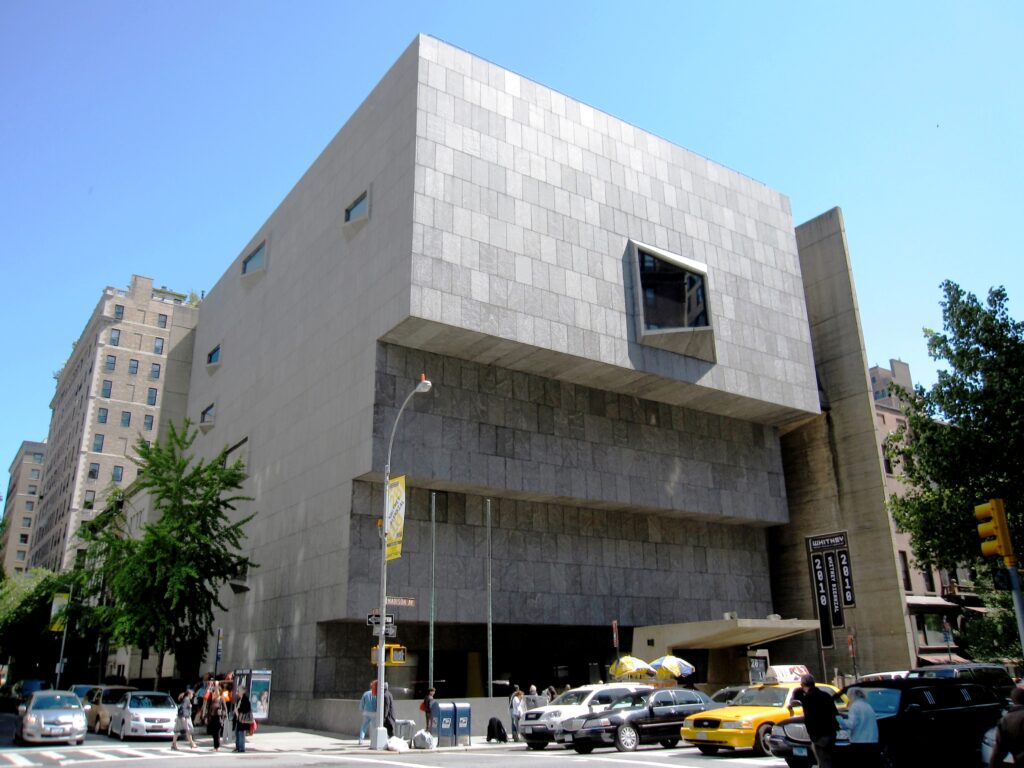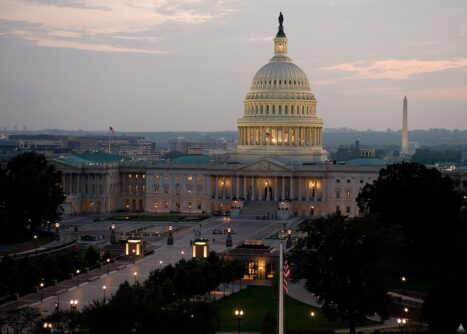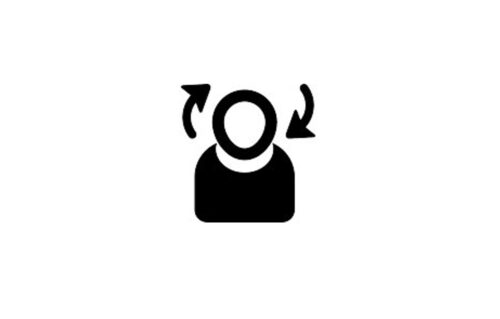Conservatives should rethink their giving and look elsewhere.
A Crain’s reporter asked billionaire David Koch in 2014, “Why have your name on so many buildings?” He replied: “One reason is that the left-wing Democrats highly enjoy calling me an evil Koch brother, and the contributions I make in these many areas are tremendously worthy. It sends a message to the political groups in this country that don’t like the conservative Republican businessman.”
Koch, who died last month, was indeed massively generous toward New York City’s cultural and medical icons, as noted by many entries in The Giving Review’s collection of obituaries and articles compiled after his death. The New York Times reports that, over the years, he had contributed some $1.2 billion to the Lincoln Center for the Performing Arts, the American Museum of Natural History, NewYork-Presbyterian Hospital, the Memorial Sloan-Kettering Cancer Center, the American Ballet Theatre, and the Metropolitan Museum of Art, among other institutions.
As his defenders note, there were several legitimate and admirable reasons for his giving, among them his mother’s great love of the arts, a close encounter with death in an airplane accident, and his own prolonged ordeal with prostate cancer. But he was sadly mistaken if he thought this generosity would mitigate the left’s disapproval of his libertarian political views, particularly his skepticism about progressivism’s climate agenda. Indeed, his death was greeted with unseemly satisfaction by far too many high-profile progressive commentators, as evidenced in The Giving Review collection—culminating in Bill Maher’s widely reported remark that he would have to reconsider his low opinion of prostate cancer, since it had been responsible for Koch’s death.
It might be tempting to chalk up this ugly episode to the Koch brothers’ particularly aggressive and generous advocacy of conservative political causes. But as many have noted, their politics were by no means conventionally conservative. As consistent libertarians, they fought state power on all fronts, opposing not only excessive regulation of markets, but also over-incarceration, limitations on abortion and same sex-marriage, and restrictions on immigration—all causes dear to progressives.
Accepting morally unacceptable money
The problem Koch faced, however, is one increasingly confronted by charitable donors in general: he made his money in morally unacceptable ways—in this case, in petroleum, chemicals, and other extractive industries. As such, the vitriol greeting his death is of a piece with growing demands by left-wing activists that nonprofits reject funding from “questionable” sources.

David Koch (Wikimedia Commons)
As if to calm Manhattan patrons suddenly nervous about the sources of their wealth, Robin Pogrebin and Elizabeth Harris, reporters for The New York Times’ culture desk, assured readers that Koch was “embraced as an arts patron, even as criticism grew.” Nevertheless, they raised a critical issue: “Whether cultural boards will remain such safe zones for trustees whose fortunes and politics prompt external criticism is very much an open question, given the recent debates over board members who sell opioids or munitions.”
As they noted, Koch’s cultural and scientific philanthropy had already begun to draw criticism. His $100 million gift to NewYork-Presbyterian Hospital in 2014 drew protests from unions carrying signs that read “Quality Care, Not Koch Care.” After the Met received $65 million from Koch that same year to renovate the plaza out front, the trustees named it for him, prompting protests from Occupy Museums, which preferred the name “Art for the Planet Plaza.”
In 2015, The New York Times reported, a group of scientists demanded that science and natural-history museums cut all ties with “contributors to climate change and funders of misinformation on climate science,” naming specifically David Koch, a board member and generous supporter of the Smithsonian National Museum of Natural History in Washington, D.C., and the American Museum of Natural History in New York. At the same time, a petition drive by Greenpeace, the Sierra Club, and other environmental groups urged the institutions to “Kick Koch off the Board.”
The Sacklers and Kanders
But none of this compares to the furor that has overwhelmed the Sackler family philanthropies during the past several years. The Sacklers own Purdue Pharma, the maker of the notoriously addictive painkiller OxyContin. Recovering from her own Oxy addiction, artist Nan Goldin organized a series of protests at cultural facilities accepting money from Sackler foundations (including those funded before OxyContin had been invented).
Beginning with demonstrations at the Sackler Wing’s Temple of Dendur at the Met and at the Guggenheim Museum, Goldin went on to protest Sackler gifts to the National Portrait Gallery in London, which subsequently refused a £1 million donation; the Tate group of art galleries in Britain, which announced it would no longer take gifts from the Sacklers; and the Louvre in Paris, which removed the Sackler name from its signage. So embarrassing had this become for the family that two Sackler philanthropies in Britain, which had given some $160 million from 2012 through 2017, announced that they were suspending their grantmaking.
Lest one think that only money made from extractive industries or deadly pharmaceuticals has become suspect, consider the fate of Warren Kanders, who was forced off the board of New York’s Whitney Museum of American Art this past July. Kanders owns Safariland, described by Pogrebin and Harris as a “manufacturer of law enforcement and military supplies”—including tear gas, which, concerned artists noted, had been used at the U.S.-Mexican border and demonstrations in Standing Rock, Baltimore, and Ferguson.
A group known as Decolonize This Place launched “Nine Weeks of Art and Action” this past March, demanding Kanders’ resignation. Hyperallergic, a “forum for playful, serious and radical perspectives on art and culture,” noted that the most-controversial demonstration came in the fifth week. That’s when Decolonize joined with Within our Lifetime, a Palestinian youth group, to protest the use of Safariland military gear by the Israel Defense Forces.

Protesters demanding Warren Kanders resignation from board at Whitney Museum of Art, New York City (Wikimedia Commons)
According to its website, Within our Lifetime identifies “the establishment and existence of the state of israel [sic] as an ongoing project of settler-colonialism that will be stopped only through Palestinian national liberation.” Small wonder that some museum-goers were offended when Whitney’s halls echoed with chants like “From Brooklyn to Palestine, occupation is a crime” and “From the river to the sea, Palestine will be free.”
In mid-July, three prominent artists published “The Tear Gas Biennial” in Artforum, calling on fellow artists to withdraw their work from the Whitney’s Biennial, one of the nation’s leading showcases of new artistic talent. It was after several artists agreed to do so that Kanders stepped down from the board.
To the Whitney and beyond
Naturally emboldened by its success with Kanders, Decolonize This Place published an opinion piece in Hyperallergic in late July entitled “After Kanders, Decolonization Is the Way Forward.” That “way” entailed examination of all museum practices by a Decolonization Commission, to include “community stakeholders and guided by a variety of urgent principles: Indigenous land rights and restitution, reparations for enslavement and its legacies, the dismantling of patriarchy, workplace democracy, de-gentrification, climate justice, and sanctuary from border regimes and state violence generally.”
The “decolonial perspective,” the piece noted, “acknowledges that the settler-colony of the United States was founded on the theft of land, life, and labor over 400 years;” it “necessitates abolition of prisons and police, borders and bosses, empires and oligarchs. What about museums?” Yes, the piece notes, some are indeed arguing “that institutions like the Whitney may in the end be unsalvageable, that they may be beyond repair and not worthy of our attention. We take this possibility seriously.”
Not surprisingly, this sort of talk is not entirely welcome among those who manage and must raise money for cultural institutions. Whitney director Adam Weinberg, Pogrebin and Harris noted, seemed flummoxed by the Kanders affair. “Here’s a man who has given a tremendous amount of his time and money to young often edgy and radical artists—somebody who is very progressive—that’s one of the ironies of all this,” Weinberg observed.
And here’s the money quote from Weinberg: “The Whitney Museum is one of the most progressive, the most diverse, the most engaged open programs of any major institution in the country. Every museum director is looking at us right now and saying, ‘Gee, if the Whitney is being targeted, what’s going to happen to us?’”
A suspect source, an inevitable illegitimacy
The underlying difficulty faced by donors and their favorite charities is that there’s really no telling what means of acquiring wealth, however legitimate by today’s quaint standards, is likely to become controversial in the future.
Julia Halperin raises this question in Artnet. “With no industrywide guidelines to help them navigate this new era, board and staff members alike are flailing,” she writes. “When is money too dirty to accept? What if you’ve already accepted it? Does it matter if the funding source was uncontroversial at the time? Is there any way out of this mess?”
Given the growing determination and confidence of groups like Decolonize This Place, there’s certainly no easy way out of this mess. Having drawn blood with the Sacklers and Kanders, the hunt for tainted money within New York’s leading cultural institutions is only getting underway.
In May, Hyperallergic published “A Closer Look Into the Whitney Museum’s Board,” lamenting that “the media’s focus on Kanders has overshadowed the perceived bad politics of other trustees,” then nominating the next three board members for defenestration.
The Vulture website joined the search in early August with an article entitled “Ranking New York’s Most Toxic Museum Boards,” trawling through the damning sources of wealth represented on Manhattan’s top five arts and culture institutions. As it points out, Michael Gross, the author of a history of the Metropolitan Museum tellingly entitled Rogues’ Gallery, once noted that, “Traditionally, New York has not cared if you’re red or blue as long as your money is green.” But now, Vulture continues, “this laissez-faire attitude is under fire. ... ‘Everyone is vulnerable in these times,’ laments one former museum executive.”
Indeed, everyone is vulnerable, not only because buried somewhere in one’s investment portfolio may be shares of a business engaged in politically incorrect behavior, but more broadly, because American capitalism itself is now deeply suspect.
If all the wealth generated within the American “settler-colony” is rooted in “the theft of land, life, and labor over 400 years,” as Decolonize This Place argues, what portion of that money is “clean” enough to entitle a person of wealth to sit on a museum board? (And lest one think that this sort of language is confined to the radical left, consider The New York Times’ 1619 Project, which argues that ours is a “racist capitalism that ignores the fact that slavery didn’t just deny black freedom but built white fortunes.”)
After the turbulent summer experienced by even progressive high-culture donors, and after the vitriol that greeted David Koch’s death, it should certainly be clear to donors of conservative persuasion that they need to think long and hard before committing substantial sums to our nation’s elite arts and cultural institutions.
While it might be possible to tone down or conceal their conservative political views long enough to become acceptable in more-progressive polite company, that’s no longer enough. As Kanders’ experience demonstrates, it’s not so much one’s political views that now count, so much as the source of one’s wealth. And in a highly politicized cultural world in which capitalism itself is regarded as fundamentally racist, exploitative, and illegitimate, that source will inevitably be suspect.
No one is now likely to believe, as did David Koch, that generosity to arts, culture, science, or medicine will “send a message to the political groups in this country that don't like the conservative Republican businessman.” Or rather, the message it would send is that some businessmen are apparently willing to endure an endless barrage of abuse and contempt, in the pathetic and futile quest for respectability among the Manhattan elites.
As has been noted earlier here in The Giving Review, conservative intellectuals friendly to capitalism have often been frustrated by the naïve belief on the part of businessmen that they could achieve that respectability, if only they declined to support conservative institutions and devoted their wealth instead to charitable causes acceptable to the elites.
No amount of arguing could persuade them that mainline cultural institutions were only too happy to take their money, knowing that it would go directly to avant-garde exhibitions and artists whose primary purpose was to shock and outrage petty bourgeois sensibilities. But now, to conservative pleas that capitalism’s dollars not be devoted to such destructive purposes are added radical demands that capitalism’s dollars must no longer be accepted. For conservative institutions of all sorts, this suggests a new fundraising slogan: “Colonize This Place.”







“Indeed, everyone is vulnerable, not only because buried somewhere in one’s investment portfolio may be shares of a business engaged in politically incorrect behavior, but more broadly, because American capitalism itself is now deeply suspect.”
This is the issue. It is one thing if we are holding everyone accountable, but when institutions are wishy-washy and changing their board standards at the drop of a dime, what do you expect? And how did art culture get so tangled into this mess? If the Art community is ready for a change they can make different board decisions moving forward. By picking members off one-by-one, it looks a lot more like a witchhunt!
Pulitzer Prize-winning art critic Jerry Saltz originally shared the opinion of this piece, and was a vocal proponent of censuring Warren Kanders. Then he declared himself to have been horribly wrong, and I encourage others to think a second time as well. He realized that convicted pedophile Jeffrey Epstein’s retinue was filled with sexual predators who were also fierce advocates of left-wing notions of morality, as opposed to simply upholding the law. The fact that convicted fugitive rapist Roman Polanski could be celebrated by leftist Hollywood because of his leftism, along with other leftist sexual predators such as Harvey Weinstein, Woody Allen and Bill Clinton, indicates that the redefinition of morality to include “sins against the planet” by drilling for oil (Koch brothers) or manufacturing tear gas (Kanders) is at least partly a smoke screen to protect these politically correct sexual predators. Jerry Saltz is right: our standard for acceptable donations should be the law. Epstein was a convicted criminal; Kanders and the Koch brothers did absolutely nothing illegal. People who try to blur that line are on the side of the sexual predators.
“…made his money in morally unacceptable ways—in this case, in petroleum, chemicals, and other extractive industries.”
Just to toss out a couple names here, I guess we have to demolish or rechristen everything named Rockefeller this or Carnegie that. Or add a plaque placing the result of morally unacceptable money in current historical context while hiding any statues of the namesakes.
And what makes Koch money less acceptable than Zuckerberg money? Or Gates money? I’m waiting for an apologia that declares these two morally acceptable. If that apologia says “because they didn’t extract anything” I’ll call bs — just exactly how much extraction is required to power their products? They may not be in the fossil fuel business, but it’s that business that makes their businesses possible. This is a political statement about deriving wealth from industries you don’t particularly like. Hypocrisy writ large.